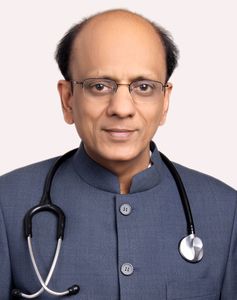IN A LONG QUEUE within an outpatient department, one can witness different kinds of patients. There is the occasional humble septuagenarian who touches the doctors' feet, showing respect for their services. There is also an increasing tribe of aggressive patients and relatives, which tends to blame the doctor and the health care system.
Violence against doctors is unacceptable and needs to be condemned. During my tenure as the national president of the Indian Medical Association, we conducted a survey which indicated that over 75 per cent of doctors had faced violence during their practice. More than 50 per cent of them were also practicing with a fear of violence and wanted to hire security. More recently, some doctors mentioned that they would like to have a licensed gun with them.
If doctors and other health care staff are always under threat, it would become difficult for them to do justice to their profession. It is therefore in the interest of the public that violence against doctors is condemned and controlled. One answer is a stringent Central act. This can be prominently displayed in the practice area. While such solutions have to be implemented at a larger level, it is also time for doctors and health care institutions to introspect. Here are some points to mull over:
BE ALERT
The first step towards a better doctor-patient relationship is to understand that the doctor needs to spend time with the patient. A concept that every doctor must remember is ALERT (Acknowledge; Listen; Explain; Review; Thank). Acknowledge patients when they enter your office. Greet them by name and introduce yourself and your staff who would be involved in patient care. Listen to your patients. Explain the disease to them. Review the information given to them to ensure that it has been understood correctly and thank the patients for giving you an opportunity to serve.
UNDERSTAND YOUR PROFESSION
There is a need for doctors to acknowledge the fact that there is no law in India that allows doctors to prefix 'Dr' before their names. It is a precedence which has been accepted and honoured by society. We must respect this. And there are certain principles involved in acting towards the welfare of the society, such as giving 10 per cent of our time to charity and not charging a fee from those who cannot afford it.
ENSURE BETTER COMMUNICATION
It is important to remember that communication is the key to a strong doctor-patient relationship. It is also a must to acknowledge the altered dynamics of doctor-patient relationship, and the paradigm shift from the doctor’s right to take a decision. There are many ways in which communication can be improved. This includes organising seminars about the penal provisions for violence against doctors, displaying patients' rights in every hospital and clinic and educating doctors about etiquette, conduct and ethics.
Patients should also be educated about the significance of informed consent and about triage in emergency, and that error of judgment does not mean negligence. A grievance redressal mechanism should be set up in every health care establishment for both patients and doctors. Hospital charges should be transparent and treatment and prescription should be rational. It would be advisable to provide transparent daily billing at hospitals to avoid future disputes and brief legal heirs of patients on the various aspects.
BRING BACK THE FAMILY DOCTOR
This is also the time to think about bringing back the age-old concept of ‘family physicians’. Unlike general practitioners, the former looked after all the health needs of a family, for many generations, regardless of their specialisation. They not only treated, but also provided preventive health care to the family as they were aware of the medical history. Considered a part of the family, the physicians were an integral part of all the important functions and events as well. All in all, they were friends, philosophers and guides to the family.
In conclusion, we must remember that doctors are not there to harm patients. But, they are also not gods who can never go wrong. Outcomes can be optimised only when other things are conducive, and this includes not just cooperation from patients but also better health care facilities and an assurance of safety. As doctors, the time has come to work towards better communication with those we treat, and take them into confidence.
Dr Aggarwal is Padma Shri awardee, and president, Heart Care Foundation of India.


